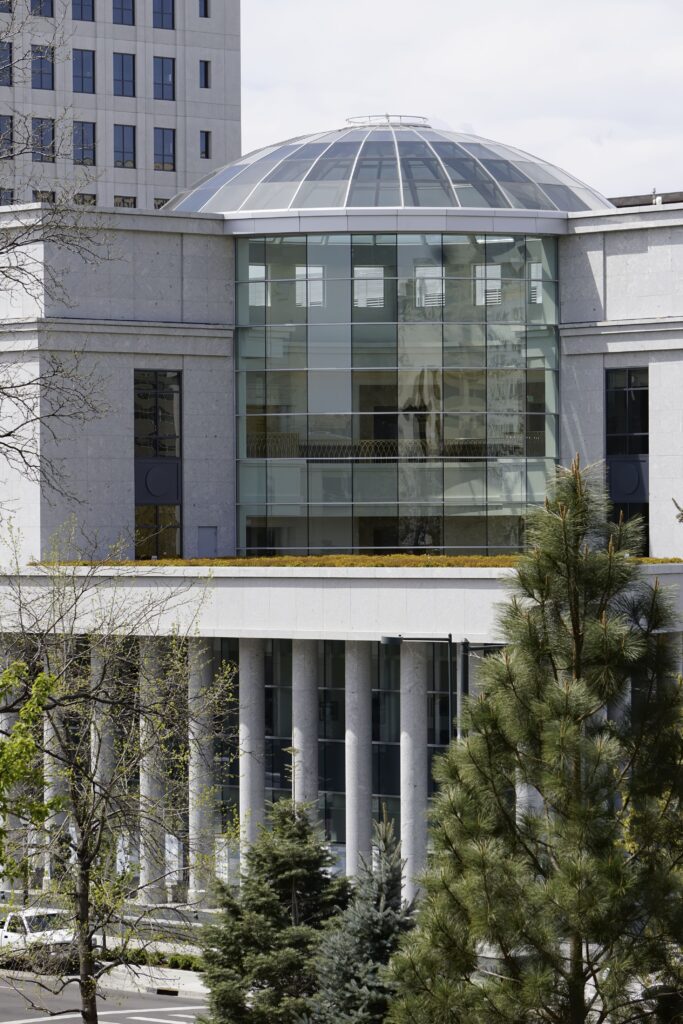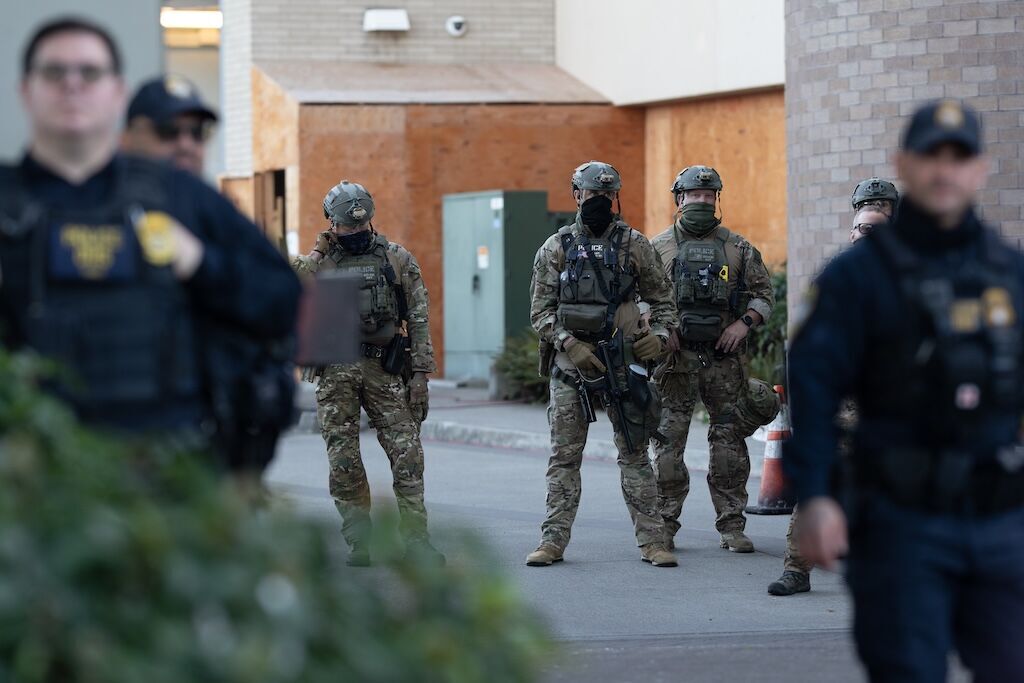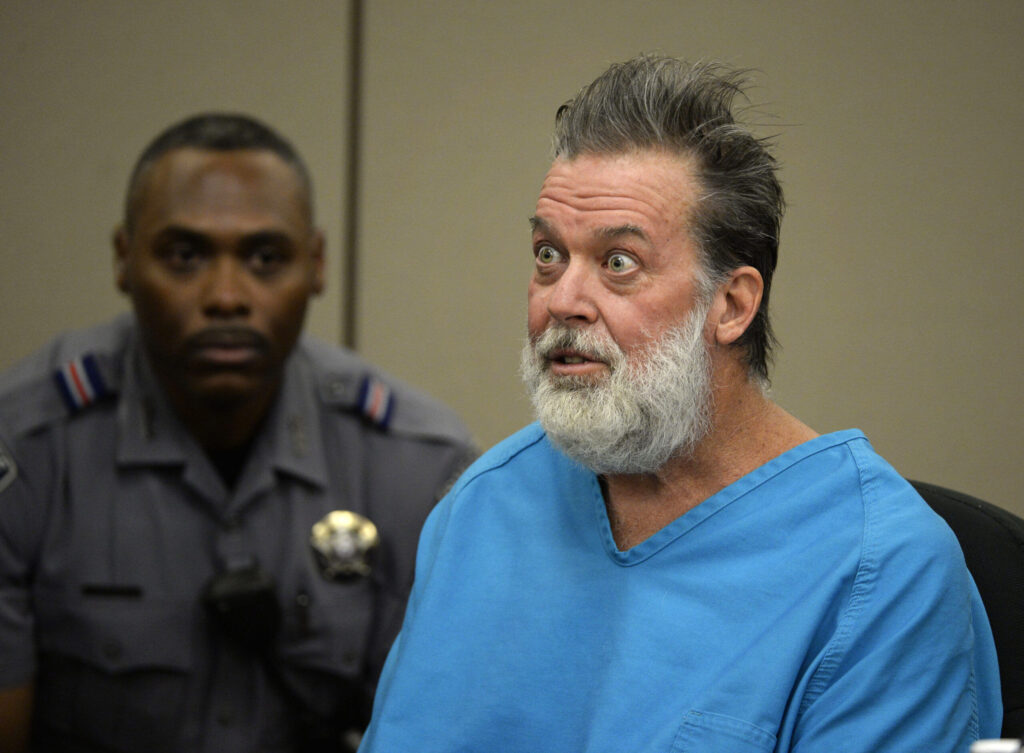Colorado legal community honors Black judges, federal judiciary recommends new judgeships | COURT CRAWL

Welcome to Court Crawl, Colorado Politics’ roundup of news from the third branch of government.
Last week, members of Colorado’s legal community celebrated the influx of Black women judges to the state’s bench, and the federal judiciary reiterated its longstanding recommendation that Colorado receive two new judge seats on its trial court.
19 current and former judges celebrated
? At Cableland, the official residence of Denver’s mayor, dozens of lawyers and judges gathered last weekend to honor 19 current and former Black women serving as judges in Colorado. Most of them came to their positions within the past four years, the result of an effort to push for more diversity on the bench. Currently, 4% of the state’s judiciary is Black, which equals the Black share of Colorado’s population as a whole.
? “I had never met a Black female judge until I got to law school. … So, to see Black women judges, that was an eye-opener for me and I realize that I am in the room with giants.” –Tiera Brown, vice president of the Sam Cary Bar Association
? While attendees, including Colorado’s attorney general and multiple Supreme Court justices, were on hand for the celebration, there was also a recognition of further work to be done. For example, there is a large gap between the percentage of Colorado’s population that is Hispanic and the proportion of Hispanic judges. There are no Black appellate judges currently. And Colorado Politics recently found that the lawyers who argue cases before the Supreme Court and Court of Appeals are overwhelmingly white and male.

michael.karlik@coloradopolitics.com
2 more judges suggested for Colorado
? Since 2019, the Judicial Conference of the United States, which is the policymaking body for the federal courts, has recommended that Congress create two new judgeships for Colorado’s seven-member trial court based on the workload. The Judicial Conference’s 2023 recommendation is once again for two additional judges, and some members of the congressional delegation are supportive of it.
? U.S. Rep. Joe Neguse and U.S. Sens. Michael Bennet and John Hickenlooper all previously introduced legislation to give Colorado three more federal judges, and their offices told Colorado Politics they still back the cause.
? For context, the last time Congress gave Colorado another federal judge was in 1984, when the state’s population was half of what it is now. Last year, judges were assigned an average of 558 civil and criminal cases each.
In other federal news
? Amazon’s practice of excluding hours worked on holidays for time-and-a-half pay from its overtime calculation doesn’t violate Colorado wage law, a federal judge ruled.
? A Montrose County sheriff’s deputy had probable cause to believe illegally-owned firearms were at a woman’s residence, meaning there was no constitutional violation.
? A federal judge decided a former Arvada city employee had not shown he was fired due to his age or perceived disability, but rather because of his history of performance issues.
? A man who shot himself in a Colorado Spring movie theater bathroom may proceed to sue the gun manufacturer for an alleged defect with his weapon – if he can prove one existed, a federal judge ruled.

? Two brothers seeking to collect on a $2.79 billion judgment against the Cuban government are now poised to go after some assets that are allegedly located in Colorado, thanks to a federal judge’s finding that their family suffered from torture and extrajudicial killing.
? The former attorney for a Jefferson County water and sanitation district may not sue the board members who voted to fire her, but may pursue her defamation claim against a blogger she claims was instrumental in her termination.
Heard on appeal
? The Colorado Supreme Court has agreed to review the case of a Saguache County judge who presided over a criminal trial despite having represented the defendant briefly in her prior job as a public defender.
? By a 2-1 decision, the U.S. Court of Appeals for the 10th Circuit found a Mexican man had a viable claim for asylum because he cooperated with American law enforcement to prosecute gang members – cooperation the Mexican cartels could plausibly target him for if he’s deported.
? Even though a judge, the corrections department and prosecutors blew past the deadlines written in state law, Colorado’s Court of Appeals determined they still had jurisdiction to impose a prison sentence on a defendant.

? A woman was fired in 2021 for declining to get a COVID-19 vaccination pursuant to her company’s policy, while at the same time failing to seek an exemption to the mandate. Under those circumstances, the Court of Appeals decided she wasn’t entitled to unemployment benefits.
? If a liquor store sells alcohol to an already-intoxicated driver, it isn’t enough to hold the store liable for any injuries the driver causes if she never touches her purchase, the Court of Appeals ruled.
? A Larimer County judge incorrectly told jurors the prosecution didn’t need to prove anything more when, in fact, prosecutors needed to prove beyond a reasonable doubt that the defendant didn’t act in self-defense. The Court of Appeals agreed with the government and the defense, who all recognized the instruction was faulty.
Vacancies and appointments
? The chief justice has appointed District Court Judge John F. Neiley to be the chief judge of the Ninth Judicial District (Garfield, Pitkin and Rio Blanco counties). Neiley is a 2013 judicial appointee who was previously a civil litigator. He will succeed retiring Chief Judge James Berkley Boyd in July.
? There are three finalists to fill the seat of retiring Chief Judge Deborah Eyler on the Pueblo County District Court: Magistrate Michelle Chostner, Fred Galves and Magistrate Steven Laman.
Miscellaneous proceedings
? The son of a shooting victim in Colorado has sued gunmaker Sturm, Ruger & Co. in Connecticut, alleging it has liability for the 2021 mass murder in a Boulder King Soopers store.
? Colorado House’s Judiciary Committee advanced three measures pertaining to judicial discipline and an “ombudsman office” that would help judicial employees handle workplace conflicts.













